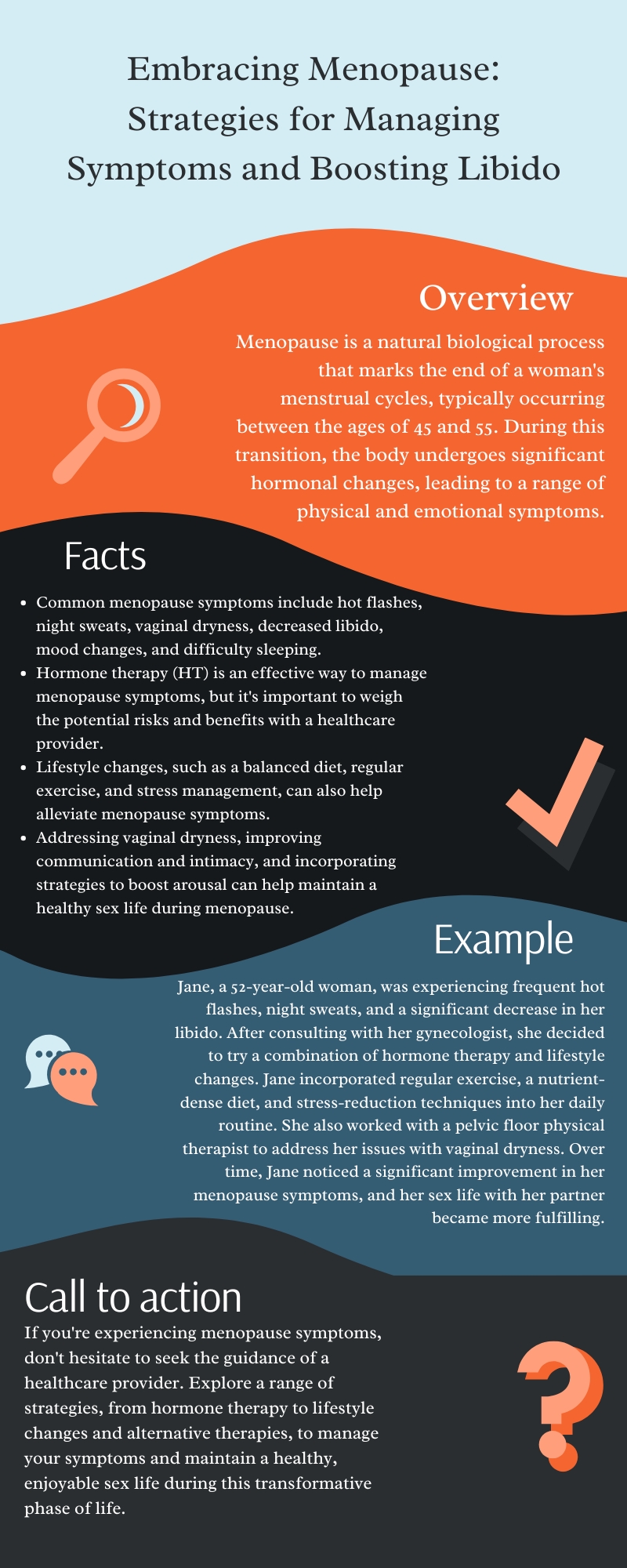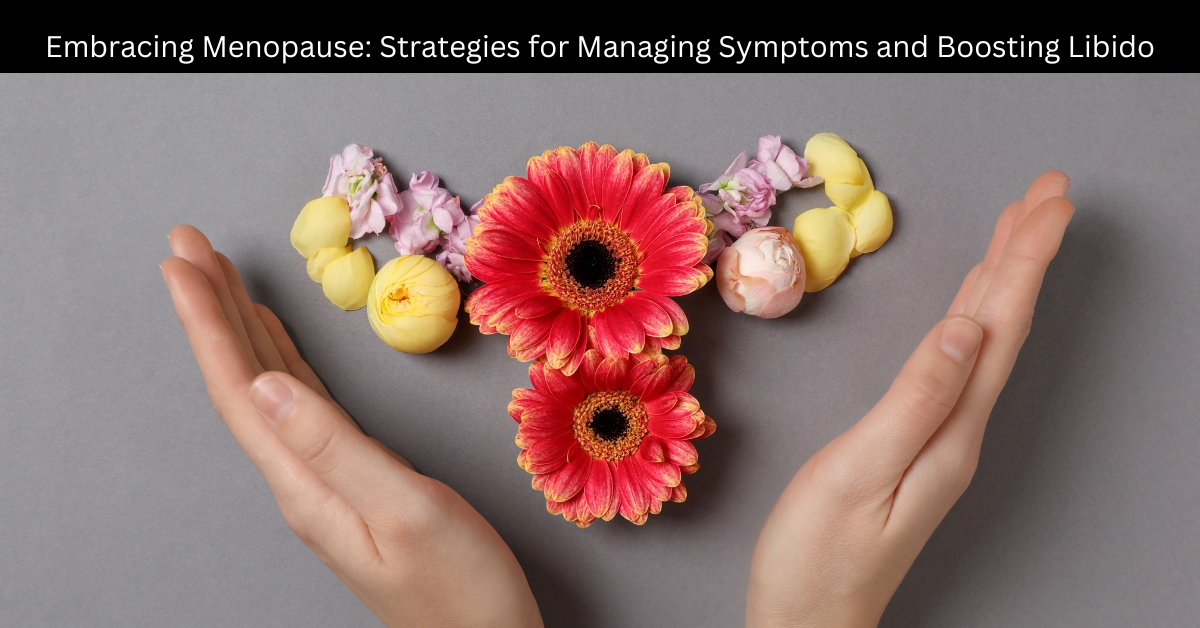The journey through menopause can be a complex and sometimes daunting experience for many women. As the body undergoes significant hormonal changes, it can lead to a range of physical and emotional symptoms that can impact various aspects of daily life.
However, with the right approach and a comprehensive understanding of the process, women can not only manage these changes but also embrace this transformative phase of their lives.
In this blog article, we will explore strategies for effectively managing menopause symptoms, with a particular focus on boosting libido and maintaining a healthy sex life.
By addressing the multifaceted nature of menopause, we aim to empower women to take control of their well-being and navigate this chapter with confidence and resilience.
Key Takeaways!
| Key Strategies for Embracing Menopause |
|---|
| 1. Understand the symptoms of menopause and their causes |
| 2. Explore hormone therapy options in consultation with a healthcare provider |
| 3. Adopt healthy lifestyle changes, such as a balanced diet, regular exercise, and stress management |
| 4. Consider alternative therapies, such as herbal supplements or acupuncture, to complement medical treatment |
| 5. Address issues related to vaginal dryness and maintain open communication with your partner |
| 6. Experiment with new ways to boost arousal and pleasure during sexual activity |
| 7. Seek professional support, such as from a gynecologist, sex therapist, or pelvic floor physical therapist, when needed |
| 8. Manage the emotional aspects of menopause through self-care, support, and embracing this transformative phase of life |
Understanding Menopause
Menopause is a natural biological process that marks the end of a woman’s menstrual cycle. It typically occurs between the ages of 45 and 55, although the exact timing can vary from individual to individual. During this transition, the ovaries gradually produce fewer hormones, including estrogen and progesterone, leading to a range of physiological and emotional changes.
1. Symptoms of Menopause
The most common symptoms of menopause include:
- Hot flashes
- Night sweats
- Vaginal dryness
- Decreased libido
- Mood changes, such as irritability, anxiety, and depression
- Difficulty sleeping
- Weight gain
- Bone loss and an increased risk of osteoporosis
While not all women experience the same symptoms, it’s important to be aware of the potential challenges and seek appropriate support and treatment as needed.
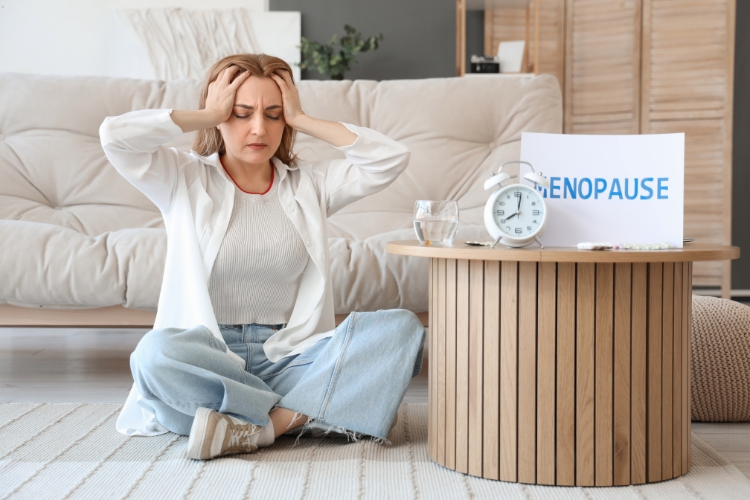
Managing Menopause Symptoms
Effectively managing menopause symptoms requires a multifaceted approach that combines lifestyle changes, medical interventions, and emotional support. Here are some strategies to consider:
1. Hormone Therapy
One of the most effective ways to manage menopause symptoms is through hormone therapy (HT), also known as menopausal hormone therapy (MHT). HT involves the use of synthetic or bioidentical hormones, such as estrogen and progesterone, to replace the declining hormones in the body. This can help alleviate hot flashes, night sweats, vaginal dryness, and other symptoms.
It’s important to note that HT has potential risks and benefits, and the decision to undergo treatment should be made in consultation with a healthcare provider, considering individual health factors and personal preferences.
2. Lifestyle Changes
Adopting healthy lifestyle habits can significantly contribute to the management of menopause symptoms. Some recommended changes include:
- Maintaining a balanced diet rich in nutrient-dense foods, such as fruits, vegetables, whole grains, and lean proteins
- Engaging in regular exercise, such as cardiovascular activities, strength training, and yoga, to improve overall well-being and manage weight
- Practicing stress-reduction techniques, such as meditation, deep breathing, or mindfulness exercises, to help manage mood changes and improve sleep quality
- Avoiding triggers for hot flashes, such as spicy foods, alcohol, and caffeine
3. Alternative Therapies
In addition to traditional medical approaches, some women may find relief through alternative therapies, such as:
- Herbal supplements, such as black cohosh, evening primrose oil, or soy isoflavones, which may help alleviate certain menopause symptoms
- Acupuncture has been shown to have a positive impact on hot flashes, mood, and sleep quality
- Pelvic floor physical therapy, which can address issues related to vaginal dryness and discomfort during sexual activity
It’s important to discuss the use of any alternative therapies with a healthcare provider, as some may interact with medications or have potential side effects.
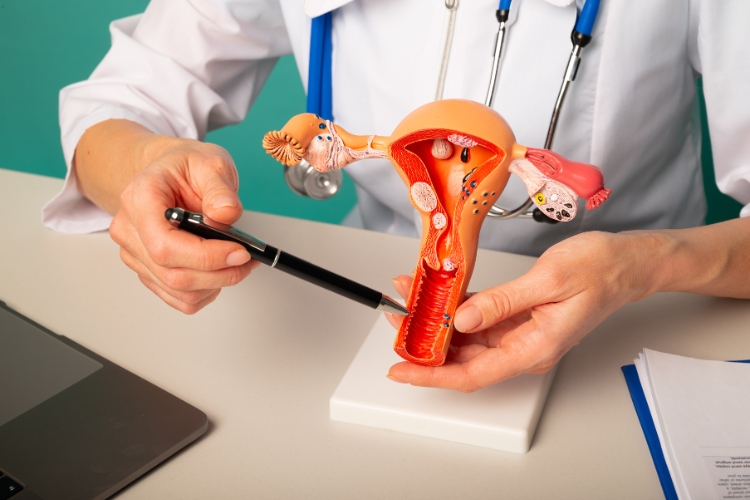
Boosting Libido and Maintaining a Healthy Sex Life
One of the challenges often associated with menopause is a decreased libido or sexual desire. This can be attributed to hormonal changes, as well as other physical and emotional factors. However, with the right strategies, women can maintain a fulfilling and satisfying sex life during this transition.
1. Addressing Vaginal Dryness
Vaginal dryness is a common symptom of menopause, and it can make sexual activity uncomfortable or even painful. To address this issue, women may consider using lubricants or moisturizers designed for menopausal women. In severe cases, vaginal estrogen therapy may be recommended by a healthcare provider.
2. Improving Communication and Intimacy
Maintaining open and honest communication with one’s partner is crucial for navigating changes in sexual desire and function. Couples may benefit from exploring new ways of being intimate, such as focusing on non-penetrative activities, engaging in sensual massage, or trying new sexual positions.
3. Boosting Arousal and Pleasure
Certain strategies can help boost arousal and enhance sexual pleasure during menopause. These may include:
- Incorporating pelvic floor exercises to improve muscle tone and sensitivity
- Experimenting with sex toys or other devices designed to enhance stimulation
- Incorporating relaxation and stress-reduction techniques before and during sexual activity
4. Seeking Professional Support
If managing libido and sexual health challenges become overwhelming, it’s important to seek the guidance of a healthcare provider, such as a gynecologist, sex therapist, or pelvic floor physical therapist. They can provide personalized recommendations and support to help women overcome these obstacles.
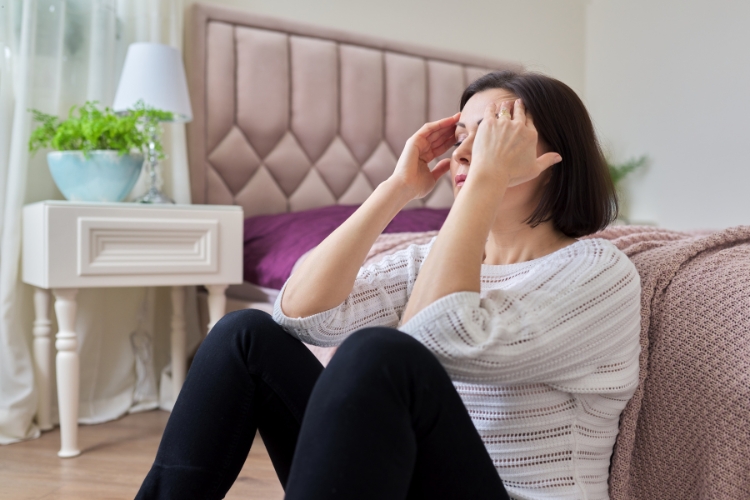
The Emotional Aspects of Menopause
Menopause is not only a physical transition but also an emotional one. The hormonal changes can have a significant impact on a woman’s mental well-being, leading to mood swings, anxiety, and depression.
1. Addressing Emotional Challenges
To manage the emotional aspects of menopause, women may consider:
- Engaging in regular exercise, as can help alleviate mood-related symptoms
- Practicing stress-reduction techniques, such as meditation, mindfulness, or deep breathing
- Seeking support from friends, family, or a mental health professional, such as a therapist or counselor
- Joining a menopause support group, either in-person or online, to connect with others experiencing similar challenges
2. Embracing the Transition
While menopause can be a challenging transition, it’s important to remember that it’s a natural and inevitable part of a woman’s life. By embracing this phase and focusing on the positive aspects, such as increased freedom, self-discovery, and personal growth, women can navigate this transition with resilience and empowerment.
Conclusion
Menopause is a profound and multifaceted experience that requires a comprehensive approach to manage the physical, emotional, and sexual well-being of women. By understanding the symptoms, exploring a range of effective strategies, and seeking the necessary support, women can not only navigate this transition but also embrace it as a transformative chapter in their lives.
Remember, every woman’s experience with menopause is unique, and the key is to find the strategies that work best for you. With a holistic and proactive approach, you can maintain your overall health, boost your libido, and continue to enjoy a fulfilling sex life during this remarkable stage of life.
FAQs:
- What are the most common symptoms of menopause?
The most common symptoms of menopause include hot flashes, night sweats, vaginal dryness, decreased libido, mood changes, difficulty sleeping, and weight gain. While not all women experience the same symptoms, it’s important to be aware of the potential challenges and seek appropriate support and treatment as needed. - How can hormone therapy help manage menopause symptoms?
Hormone therapy (HT) is one of the most effective ways to manage menopause symptoms. HT involves the use of synthetic or bioidentical hormones, such as estrogen and progesterone, to replace the declining hormones in the body. This can help alleviate hot flashes, night sweats, vaginal dryness, and other symptoms. However, it’s important to discuss the potential risks and benefits with a healthcare provider. - What lifestyle changes can help manage menopause symptoms?
Adopting healthy lifestyle habits can significantly contribute to the management of menopause symptoms. Recommendations include maintaining a balanced diet, engaging in regular exercise, practicing stress-reduction techniques, and avoiding triggers for hot flashes, such as spicy foods, alcohol, and caffeine. - How can women boost their libido and maintain a healthy sex life during menopause?
Addressing vaginal dryness, improving communication and intimacy with a partner, and incorporating strategies to boost arousal and pleasure can all help women maintain a fulfilling sex life during menopause. Seeking professional support, such as from a gynecologist, sex therapist, or pelvic floor physical therapist, can also be beneficial.
